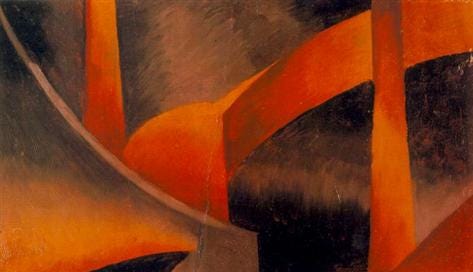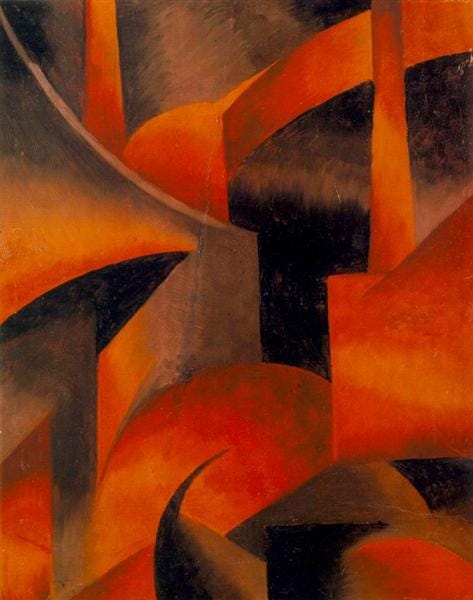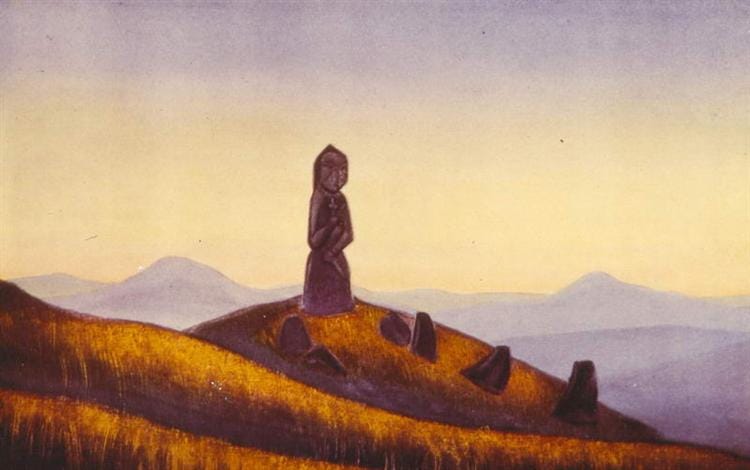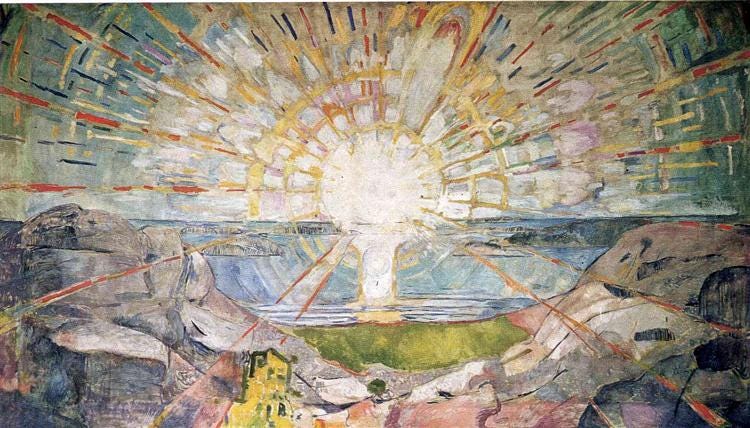Keeping up with the lanky figure in the cone of my headlights is getting difficult. On foot, he’s better equipped to dodge the shadowy obstacles all around us. The probing arms and troll-shaped lumps are easy enough to steer around. It’s the unevenness of the desert floor and upward slope that’s slowed me to a crawl. When Ruby the van’s right front tire dips toward a depth I’m unwilling to explore, I brake.
“Dean, hold up,” I call out the window. But he quickly fades out of sight.
I know right away this position—nose up an incline and tilted like a walk home after a bar crawl—is where I’ll spend the night. I guess I don’t need to tell you why, when you live in a vehicle, the levelness of how you park matters. But I’m new at this, I’ve driven 300 miles today, and I don’t have another inch in me.
Once dawn turns arms into creosote branches and trolls into boulders, I’ll see we’re on the cusp of a true outpost. Quartzite, Arizona, has a population of 2,300—give or take the 1 to 2 million who pass through or stay awhile each winter.1 The town is mostly a smattering of watering holes; a few grocery stores, heavy on canned goods; a hardware store; and a laundromat/diner where you can grab a hot shower too. There’s little by way of shade. The air is still, until it’s windy, in the way of men along a fence, who could be standing or could be waiting. At the small library a few days later, I’ll learn there’s no Wi-Fi in town. (“No one wants it,” the librarian will say when I ask for it.)
It’s sprawling blocks of canvas stalls that call many to this arid land, where it’s said camels once roamed and it’s certain the Chemehuevi called home. You know the place: A maze of just-for-you bargains, of African masks and Navajo rugs, of salvaged cowboy relics and Americana and industrial equipment, of bins to sort through and jewelry to try on and rarities to discover—and here, of septic hoses and solar lights and installable awnings.
It’s the Arizona Peace Trail that calls, too, a nearly 700-mile, off-road-vehicle loop along the Colorado River bank and up through the Hualapai Mountains. It’s the gems and minerals on display and in the earth. It’s the gold you can still pan for at Dome Rock.
And it’s the promise of never being found.
Once, westbound wagons stopped for supplies. Now, homes on rubber wheels circle up. Especially during the annual RV show, you can find RVs that cost the same as brick-and-mortar houses in some US states, lined row after row in temporary neighborhoods. Down endless unmarked paths, you’ll happen on more thinly scattered camper vans and fifth-wheels and pull-behind trailers and rusted shells of vehicles with little more than a thin mattress and a cooler inside. Roam for hours, round a bend, and here’s a truck camper cozy in the rare shade of tall green palo verde. Take another turn, and there’s a beast of a rig, part semitrailer cab, part school bus, with a truck bed at the end.
I know none of this yet. I know only that I’ve come for Rubber Tramp Rendezvous, an annual gathering for those who, like me, are building their own homes in vehicles. RTR is hosted by Bob Wells (now of Nomadland fame). (He’s the guy with the Gandalf beard, one of the real-life “characters” in the film, which paints a good picture of one slice of the life I’ll find living on the road.)
When Dean returns to Ruby’s yolky cone, I flip the headlights off.
“I just don’t know what to think.” His eyes are wide—flying saucer-wide, dude, this-place-ate-my-car wide. “It was right there.” He points to an unclear distinction between pewter and coal. In this liminal space between sky and hill, I think I make out a tall ghost standing sentinel, an arm on either side pointing up. But there’s no silver Scion to be seen. Toaster, Dean’s own wheeled home, seems to have left the desert.
“We’ll find it,” I say.
Dean, an adventure buddy who lives in his sailboat and travels in Toaster, came out to the highway to meet me when I rolled in well after sunset. He jumped into Ruby’s passenger seat. At first, he was confident. “Left here, now right,” then hesitant, “Right … again?” before jumping out and tearing out ahead.
Now, he’s pacing.
“Let’s think this through,” I say. I point to three green glowworms hovering high in the sky. He doesn’t remember seeing the RVs the beacons must belong to, so can’t relate them to where he parked Toaster.
What about walking back to the I-10 East junction, retracing the path he took in?
“I gotta go,” he says.
I say he can sleep on my “couch,” a folded futon topper that takes up the entire floor when opened; we’ll find Toaster tomorrow. He huffs, downs some water, and takes off.
I chop squash and garlic and peppers, bracing with my foot to keep from leaning forward, and light the stove. Fishing a beer from the fridge, I want Dean to hurry back and share in the fruits of our effort; months ago, he and another friend helped me install 300 watts of solar on the roof and build an electric system with a fusebox and a 100-amp-hour battery. I add a couple of sausages, positioning them so the sizzling veggies will stop sliding to the far edge of the pan. I pop a pepper in my mouth and wince with the delight of heat and oil and brightness.
Fifteen years earlier, Bob Wells watched his father die only two years after finally being able to retire from the Safeway where Bob still worked. He quit and moved into a box van, knowing only where he didn’t want to end up. Eventually, he found a life he loved. This gathering is one of his efforts to support others in his position, people on the road due to little to no financial options.
That’s not exactly me. But I did buy this hollowed-out 1996 Ford Econoline for $1,500 cash so I could get back to what I’d wanted to do for as long as I could remember—write and travel. It’s not my first period of nomad-ish living. This time, though, feels more decisive. I’ve given away or stored everything that doesn’t fit inside these 60 square feet.
Over the next few years, this new life I’m creating will facilitate the writing, but not right away. It’s January 2020 now, and there are a few more changes to come. For now, all I know is I, too, am no longer heading toward somewhere I don’t want to go.
As I turn off the burner, Dean’s empty coat falls to the floor. I peek my head out the barn door and shiver, surprised at how much colder it already feels.
I woke this morning on the outskirts of St. George, Utah, to a frozen water bottle on my bedside table. Forcing myself into the frigid air, I scrambled to my propane heater. I couldn’t get more than a spark. I tried again and again, my fingers getting more and more numb. (I’ll learn later propane shrinks in extreme cold, which can prevent it from reaching the gas burner.) I hadn’t yet fixed the fan in the dashboard, so I couldn’t just crank the engine and vent heat into the cab. When my fingers were blocks, unable to depress the igniter one more time, I felt a surprise of tears in my eyes. Panic rose from my stomach like a flock of birds in the undergrowth you only realize are there when you disturb them.
Now, I picture Dean, disoriented, looking for Ruby’s lights. I spill out the door. Only a few paces into the night, I turn and find the glow from inside my little home a mirage of a glint.
I flash the headlights. I wait. I gather coat and headlamp.
“Found it.” Dean’s voice precedes him. He’s chortling, chagrin drowned by relief.
The desert’s a trickster, the sun a perfect foil. Over phone calls from different deserts later, we’ll each share stories of learning the truth. Desert needs nightfall to disappear something as small as a car like the fancy rigs at the show need buckets to pee in.
Soon, we’re both yawning. A final toast sends Dean back to Toaster and me to wedge pillows at the foot and side of my bed to keep me in place.
Earlier this morning, I fumbled bungies into hooks, crammed loose bits here and there, and clambered into the driver’s seat. As I gripped the cold steering wheel, hightailing it for the nearest coffee shop, dawn arrived like a giggle of amusement. Light spilled over the rust-colored cliffs on either side of the road, catching the hematite and iron oxide and quartz grains embedded in the granite. I was surrounded by crimson and cream rock glowing pink.
Now, I pull back the curtain next to the bed and take in the night sky. My heart winces with pleasure as the stars begin to tattoo themselves there.
Comment question: When have you lost something that was so close and yet soooo far away?
Annual paid subscriptions remain on deep discount ($31.50/year ($2.63/month). Paid subscribers are my bread and butter. All subscribers are my heart. Each upgrade, like, comment, and restack tells me you want this desk to keep rolling out posts for you. 🥰
Estimates vary kind of wildly. Wikipedia, obviously the most reliable of sources, says 1.5 million. So 1 to 2 million seems right.










“For now, all I know is I, too, am no longer heading toward somewhere I don’t want to go.” — this line really got me. It’s so powerful.
Your descriptions are so vivid, Holly. I so enjoy reading your writing not just for the stories, but also for all the times I say to myself - ‘ohh I see what she did there, damn that was good’.
What gorgeous writing!